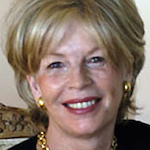What Good Editors Do and How To Find One

“Just get it down on paper, and then we will see what to do with it,” said Maxwell Perkins to his authors, who included Ernest Hemingway, Thomas Wolfe and F. Scott Fitzgerald, for starters. Perkins is the editor who convinced those in charge at Scribner that The Great Gatsby was a masterpiece, and then he worked closely with Fitzgerald to help make it into just that. In fact, if you are curious about what great editing looks like, you might want to take a look at the correspondence between these two gentlemen.
Encouraging writers to complete their manuscript is just the first step in the editorial process. In my thirty years as an editor in the traditional book publishing world, I’ve seen talented editors transform hundreds of manuscripts from ordinary to extraordinary. Perhaps it is a question of reorganization, or maybe the lovers don’t have any chemistry, or maybe the title is flat or misleading. It’s interesting to note that two of the titles Fitzgerald considered for his masterpiece are The High-Bouncing Lover and Trimalchio in West Egg. Thank you Mr. Perkins.
There are four kinds of editors
Make sure you hire the right editor at the right time in the process. Hiring a proofreader to work on a rough draft will be a waste of time, and no one needs a copyeditor until the work is complete.
1. Developmental editors work with you from the very beginning, often before you have even put a word to paper. They help you refine your concept, figure out who you are writing for, organize the material and arrange your chapters in non-fiction, and work out how you are going to get Sam and Sally off the dark planet before the cyborgs arrive in your sci-fi novel. They are right there, offering advice and counsel every step of the way. I like to think that good developmental editors are like good shrinks. They don’t tell you what to do; they get you to tell yourself.
2. Substantive or content editors start their work once you have completed yours. They help you find your voice, become comfortable with it, nurture it. They may ask you to rewrite sections, delete chapters because they are just slowing everything down, or introduce a new character that can help the reader see things from a fresh point of view. They will ask all kinds of questions, check your facts for accuracy (or ask you to check them), your prose for readability and your plot for plausibility. They suggest where to cut, to expand, to go deeper. They make sure you keep up the momentum, point out where a character’s behavior doesn’t make much sense, or his dialogue doesn’t ring true. At the end of this process you should have a tight, professional, compelling manuscript that is almost ready to go to press or, for self-publishing authors, to be converted to the file formats you need.
3. Copyeditors are the techies. They read your completed manuscript carefully for grammar, style, spelling and punctuation. They will point out inconsistencies and inaccuracies and they may even rewrite a confusing sentence or two. You can restore whatever you want, but in my experience good copyeditors are almost always right.
4. Proofreaders are the last to see the manuscript. They go over the manuscript after the design is completed and make sure the front matter and back matter, photos and captions are all in place. They also check headings, page numbers, typefaces, sub-heads, running-heads, and they make sure the corrections suggested by the copyeditor have been inserted properly.
How do you find a good editor?
By good, I mean good for you and your book. In my view, a good, well-qualified editor is likely to be a professional editor with lots of experience in the traditional book-publishing world. Someone who has graded papers for non-English speaking students who are learning to read English, or who is teaching English to middle-school students probably won’t cut it—not because they are not smart and literate, but because books are special and, again in my view, editors who have worked on successful published books often develop a feel for what makes a book strong, and what works and doesn’t work in the marketplace. Once you have found the person you feel may be right for your book, ask her where she had worked and what books she has edited. Make sure she has had experience editing the kind of book you are working on. Remember you are hiring her, not vice versa.
Where can you find this person?
- Get a referral. Ask your friends, other writers, agents you meet at writers’ conferences.
- Search online. Try Google. Type in “freelance book editors” or “book coach” and see what you get—but remember to do your homework and thoroughly check out those editors that appeal to you. You can also look at associations of editors such as the New York Book Editors, Bay Area Editors Forum, Editorial Freelancers Association or Editcetera.
- Chat with the editor. Be clear about your goals. Ask him about his credentials and for the titles of some of the published books he has worked on. Do you like him? Does he seem enthusiastic about your project? Be sure you feel a positive connection with him because you will be working together closely, and it is important that you feel he gets you.
- Ask to speak to a satisfied client. Ask this writer how the editor worked, if he met his deadlines, if he had a positive attitude, if he would hire the editor again.
- Ask about the project timeline. When can you expect to see something from him—about how long does he think this process will take?
- Has he had experience with self-publishing? If you are considering becoming an indie author, it can be helpful to work with an editor who has had experience with this. It is not essential, but just a nice plus in case you have questions about the process and need some guidance. Ask if they provide this as part of their services.
Trust your instincts. You are the author, the creator of this book and your name is going on the cover and the title page. Your book is unique and you need to work with someone who appreciates that. Go with what feels right to you and chances are, it will be right—for you and your book.










